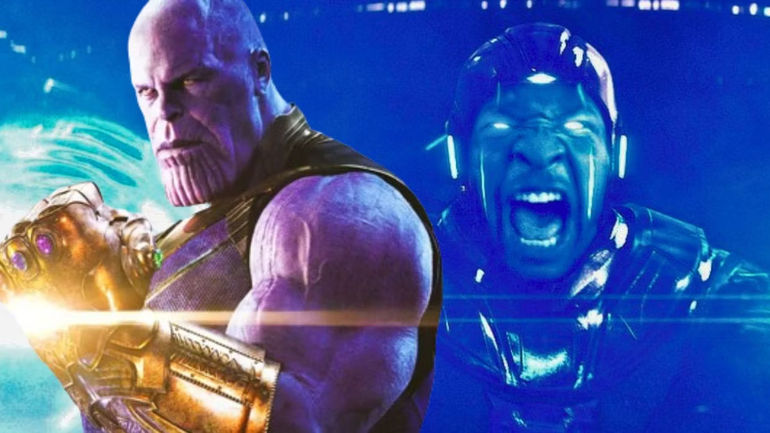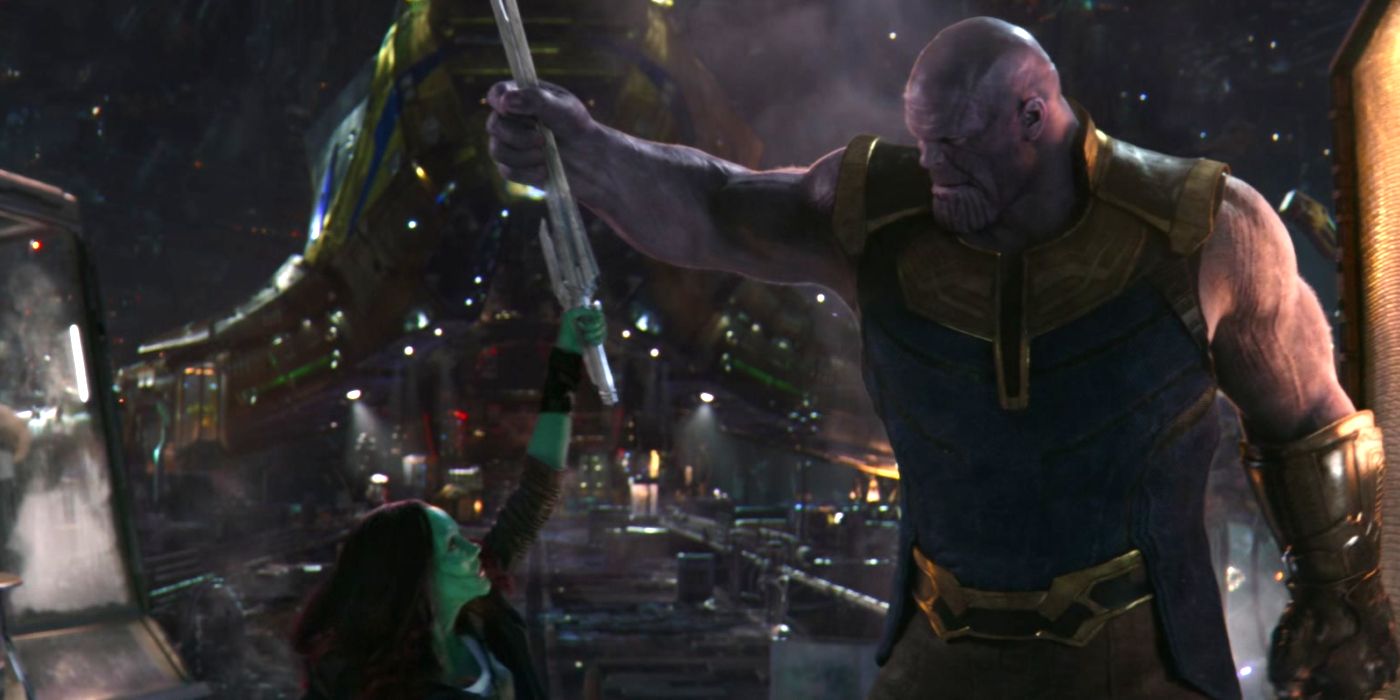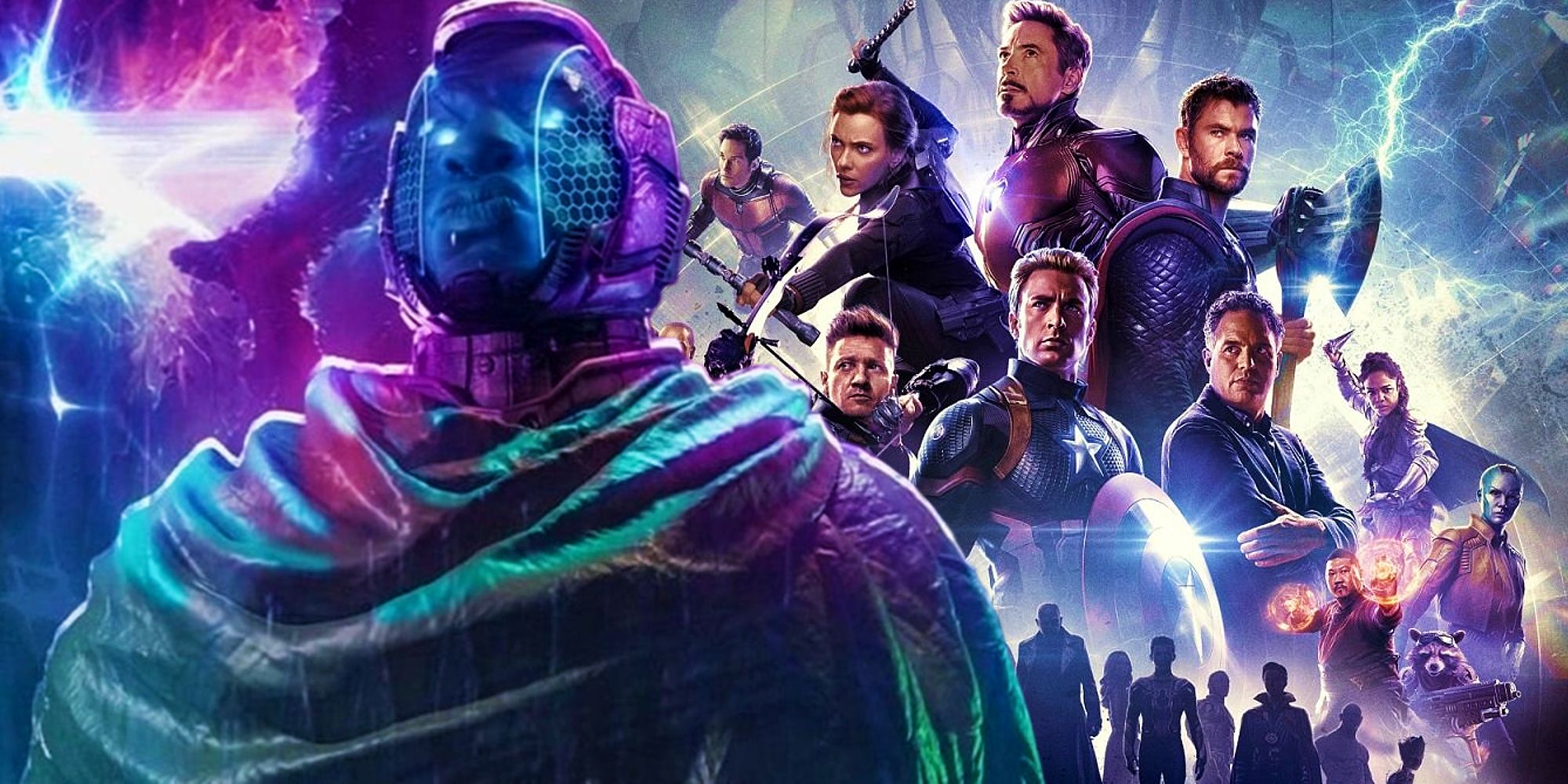
Thanos has been a formidable threat in the Marvel Cinematic Universe, but Kang, another cosmic villain, is just as menacing with his powers to alter dimensions and lead multiple variants of himself. Thanos played a pivotal role as the main antagonist in the MCU movies until his demise in Avengers: Endgame in 2019. However, this was not the only time Thanos faced death, as the MCU's universe-hopping nature has seen him killed on-screen multiple times.
The animated series Marvel’s What If…? showcases most of the eight deaths of Thanos in the MCU, and Doctor Strange in the Multiverse of Madness also explores a different demise for Thanos outside the main MCU timeline. Following Thanos's exit in Avengers: Endgame, Kang emerged as the next major villain in the franchise as Phase 3 concluded. Despite Kang's significant appearances in Loki and Ant-Man and the Wasp: Quantumania, he has struggled to reach the level of the Mad Titan. However, the reason for this is not as straightforward as some may speculate in Kang's villainous storyline.
Thanos' 8 MCU Deaths Prove Kang's Quantumania "Death" Wasn't The Real Problem
Zoe Saldana as Gamora fighting Josh Brolin as Thanos in Avengers: Infinity War - Thanos' 8 MCU Deaths Prove Kang's Quantumania "Death" Wasn't The Real Problem
Ant-Man and Wasp took on Kang the Conqueror in the Quantum Realm in Ant-Man and the Wasp: Quantumania. They managed to defeat Kang by pushing him into his multiversal engine, resulting in a twist ending. It is uncertain if Kang is truly gone, but even if this version of the supervillain is dead, the impact is not as emotionally resonant as Thanos' many deaths. The same can be said for the deaths of Kang variant Victor Timely in Loki, and Sylvie killing He Who Remains right after the introduction of the Kang variant in the season 1 finale.
Although Kang's unexpected deaths may have implied that the main issue was his quick defeat, the real concern seems to be the lack of significant moments in the Multiverse to establish Kang as a true threat before his demise. In contrast, the deaths of Thanos are deeply rooted in dramatic character arcs.
When Gamora, Thanos' adopted daughter, tries to defeat him, the violence reflects their troubled father-daughter relationship explored in flashbacks and previous films. This leads to a dramatic fakeout death that still resonated with audiences due to their strong bond, and the intense fear Gamora showed towards her estranged father.
In a similar vein, Thor's act of beheading Thanos in Avengers: Endgame was a powerful moment driven by the Asgardian's regret for not finishing the job in the past. On the other hand, Ant-Man taking down a multiversal conqueror lacks the same impact, highlighting the need for a different approach if Kang, played by Jonathan Majors, remains the main villain in the Multiverse Saga of the MCU.
How The MCU Could Still Save Kang
Artwork of the MCU's Kang the Conqueror and the Sacred Timeline next to the poster for Avengers: Endgame - How The MCU Could Still Save Kang
Custom Image made by Lewis Glazebrook
Kang's mysterious disappearance at the end of Ant-Man and the Wasp: Quantumania leaves room for speculation about his survival. This opens up possibilities for the character to return in future MCU projects, such as Avengers: The Kang Dynasty. In the comics, Kang the Conqueror is a well-known villain of the Fantastic Four, so a potential Fantastic Four reboot could hint at Kang's larger schemes, similar to how Thanos was introduced in earlier MCU films like The Avengers and Guardians of the Galaxy.
In the comics, Kang's younger self once took on the identity of Iron Lad and formed the Young Avengers. This connection could potentially link Kang to a future release of the Young Avengers in the MCU.
Currently, it appears that the MCU is planning to cast a new actor for the role of Kang, as Jonathan Majors has departed from Marvel Studios after his trial's guilty verdict. With The Kang Dynasty still in development, a new actor could explore Kang's origins and personal motivations in greater depth.
Although Loki season 2 attempted to delve into Kang's backstory, it mainly focused on Victor Timely instead. This limited the series' ability to fully integrate Kang's story into the current narrative of the franchise. However, the show did hint at how even a well-intentioned Kang variant could easily be swayed by his own potential, presenting exciting possibilities for the MCU.
In the MCU, what made Thanos stand out was his humanizing qualities, despite being a brutal and merciless character. To make Kang equally compelling in future projects, it is important to explore what turned Kang variants like the Conqueror into villains, rather than just focusing on epic battles.
Editor's P/S:
The article effectively analyzes the differences between Thanos and Kang's deaths in the MCU, highlighting the lack of emotional resonance in Kang's demise. The author astutely points out that Thanos' deaths were deeply intertwined with his character arcs, while Kang's felt rushed and anticlimactic. The article provides compelling suggestions for how the MCU could improve Kang's character development, including exploring his origins, motivations, and potential connections to other heroes and storylines.
Overall, the article offers a thoughtful and insightful perspective on the challenges and opportunities presented by Kang as the MCU's next major villain. It emphasizes the importance of character depth and emotional connection in creating a truly compelling antagonist, and provides valuable insights for future MCU projects to address these issues.















